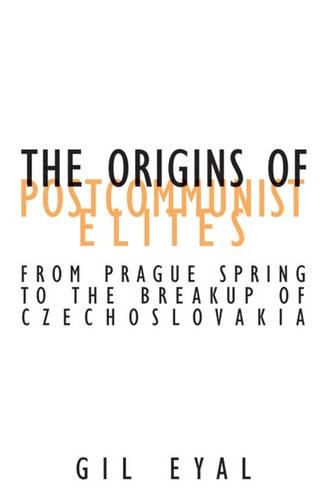
The Origins Of Postcommunist Elites: From Prague Spring To The Breakup Of Czechoslovakia
(Paperback)
Publishing Details
The Origins Of Postcommunist Elites: From Prague Spring To The Breakup Of Czechoslovakia
By (Author) Gil Eyal
University of Minnesota Press
University of Minnesota Press
1st May 2003
United States
Classifications
General
Non Fiction
Social theory
943.7043
Physical Properties
Paperback
272
Width 149mm, Height 229mm, Spine 15mm
Description
How is it that Czechoslovakias separation into two countries in 1993 was accomplished so peacefullyespecially when compared with the experiences of its neighbors Russia and Yugoslavia This book provides a sociological answer to this questionand an empirical explanation for the breakup of Czechoslovakiaby tracing the political processes begun in the Prague Spring of 1968.
Gil Eyals main argument is that Czechoslovakias breakup was caused by a struggle between two fractions of what sociologists call the new class, which consisted primarily of intellectuals and technocrats. Focusing on the process of polarization that created these two distinct political elites, Eyal shows how, in response to the events of the ill-fated Prague Spring, Czech and Slovak members of the new class embarked on divergent paths and developed radically different, even opposed, identities, worldviews, and interests. Unlike most accounts of postcommunist nationalist conflict, this book suggests that what bound together each of these fractionsand what differentiated each from the otherwere not national identities and nationalist sentiments per se, but their distinctive visions of the social role of intellectuals.
Reviews
"Eyals book brings a fresh perspective . . . compelling, original insight . . . An intellectually significant book, whose claim to address wider questions of power should be taken seriously."Europe-Asia Studies
"Eyals analysis is a provocative one . . . a novel and challenging perspective on the events and key actors of the critical period that ended in the demise of the Czechoslovak federation."Slavic Review
Author Bio
Gil Eyal is associate professor of sociology at Columbia University.
